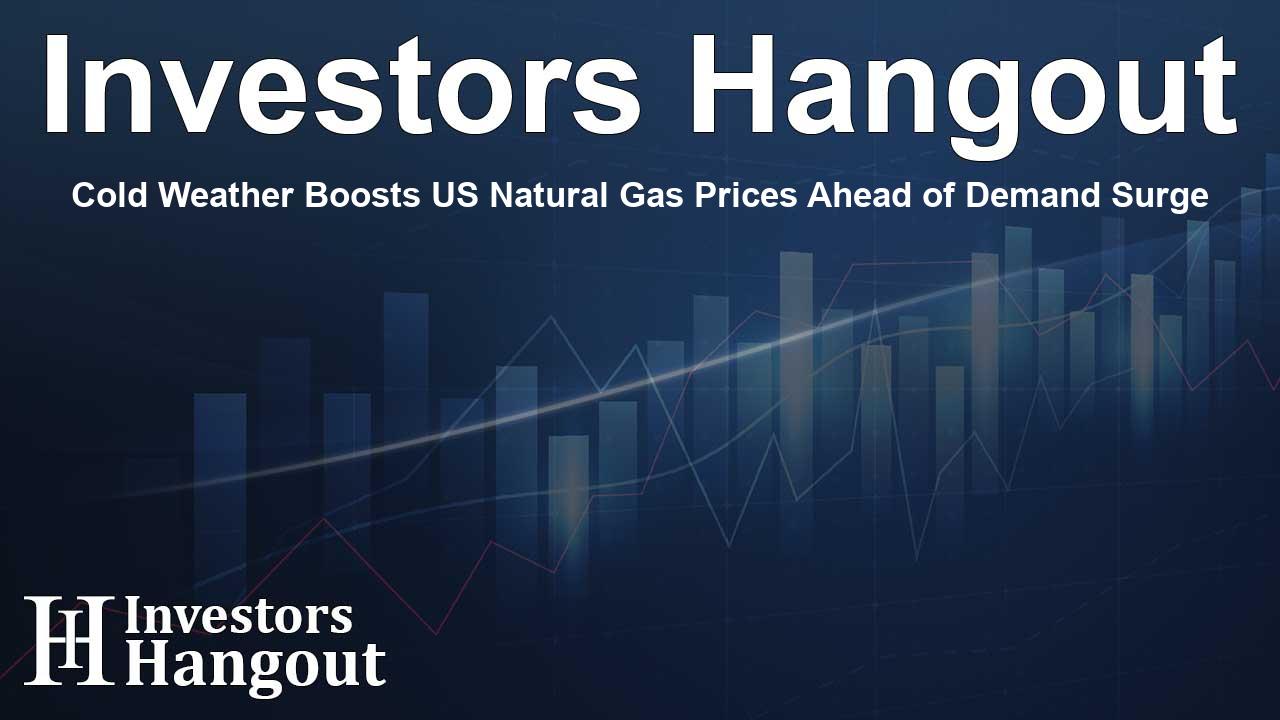Cold Weather Boosts US Natural Gas Prices Ahead of Demand Surge

Cold Weather Influences Natural Gas Prices
A recent analysis by RBC Capital Markets highlights how U.S. natural gas prices continue to be positively impacted by lower temperatures and a growing demand for liquefied natural gas (LNG) feedgas. The ongoing cold snap is not merely a fleeting phenomenon; forecasts indicating that these chilly conditions will persist have made investors keenly aware of supply responses to possible price surges.
Demand Dynamics Under Cold Conditions
The current landscape of natural gas demand is strengthening as cold weather grips significant parts of the country. Historically, colder winters tend to push demand higher. While it is expected that rising prices might encourage a boost in supply—particularly from drilled but uncompleted wells (DUCs) or previously curtailed production—the ongoing trend of consolidation among producers could limit any large-scale increases in output.
Consolidation Among Producers
Publicly traded companies are increasingly mindful of capital discipline. This means they are likely to shy away from making drastic increases in production, even as prices rebound. Data shows a notable decrease in the number of active rigs over the past five years across critical areas like Marcellus, Utica, and Haynesville, with a total of 20 rigs cut, predominantly by these public firms.
Recent Storage and Inventory Trends
According to the most recent weekly storage inventory data reported, there was a withdrawal of 116 billion cubic feet (Bcf). RBC analysts describe this as a bearish indicator, as it landed short of the anticipated 128 Bcf withdrawal consensus. Comparatively, this withdrawal still outpaces both the five-year average, which stands at 104 Bcf, and the 35 Bcf pull during the same week last year.
Future Expectations for Withdrawals
As we look ahead, RBC forecasts that upcoming reports may indicate a withdrawal between 65-70 Bcf. This range is modestly below the typical seasonal average, which generally falls between 70-90 Bcf. Analysts note that holiday timings could also play a significant role in influencing these figures, as market behaviors often shift during festive seasons.
Market Sentiment and Investor Focus
Investors remain vigilant regarding how the market will adapt in response to shifting temperatures and the resulting demand for natural gas. The scenario is not just about immediate weather conditions; there is also an understanding that consumer behavior, along with international demands for LNG, can significantly affect the overall market climate.
Conclusion
The intersection of cold weather, heightened liquidity in natural gas, and producer discipline creates a complex yet fascinating market dynamic. Both public and private operators are certainly taking heed of these meteorological effects, ensuring they act pragmatically to navigate the tumultuous waters of natural gas pricing.
Frequently Asked Questions
What is driving the current support for natural gas prices?
The support for natural gas prices is primarily driven by cold weather and increased demand for liquefied natural gas (LNG) feedgas.
How does producer consolidation affect natural gas supply?
Producer consolidation typically leads to a more cautious approach to production increases, even when prices rise, thereby stabilizing market supply.
What was the latest withdrawal data from natural gas storage?
The latest data showed a withdrawal of 116 Bcf, which was lower than expected but still greater than the five-year average.
What are the projections for upcoming gas withdrawals?
RBC anticipates that upcoming reports will reflect a withdrawal range between 65-70 Bcf, slightly lower than the seasonal norm.
How do holiday seasons influence gas demand?
Holiday seasons often change consumption patterns, influencing demand levels and overall withdrawal figures in the market.
About Investors Hangout
Investors Hangout is a leading online stock forum for financial discussion and learning, offering a wide range of free tools and resources. It draws in traders of all levels, who exchange market knowledge, investigate trading tactics, and keep an eye on industry developments in real time. Featuring financial articles, stock message boards, quotes, charts, company profiles, and live news updates. Through cooperative learning and a wealth of informational resources, it helps users from novices creating their first portfolios to experts honing their techniques. Join Investors Hangout today: https://investorshangout.com/
Disclaimer: The content of this article is solely for general informational purposes only; it does not represent legal, financial, or investment advice. Investors Hangout does not offer financial advice; the author is not a licensed financial advisor. Consult a qualified advisor before making any financial or investment decisions based on this article. The author's interpretation of publicly available data shapes the opinions presented here; as a result, they should not be taken as advice to purchase, sell, or hold any securities mentioned or any other investments. The author does not guarantee the accuracy, completeness, or timeliness of any material, providing it "as is." Information and market conditions may change; past performance is not indicative of future outcomes. If any of the material offered here is inaccurate, please contact us for corrections.